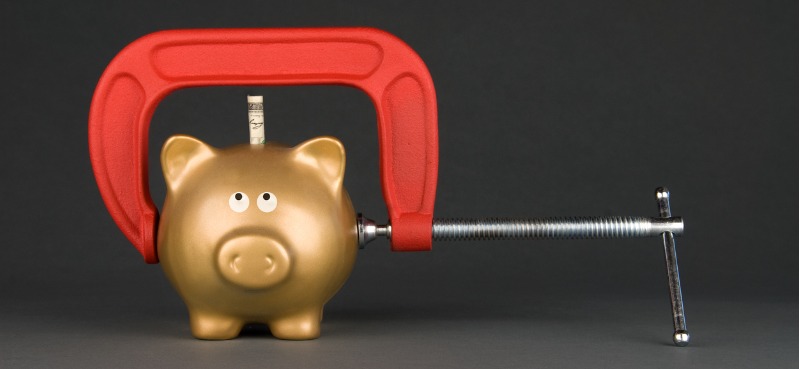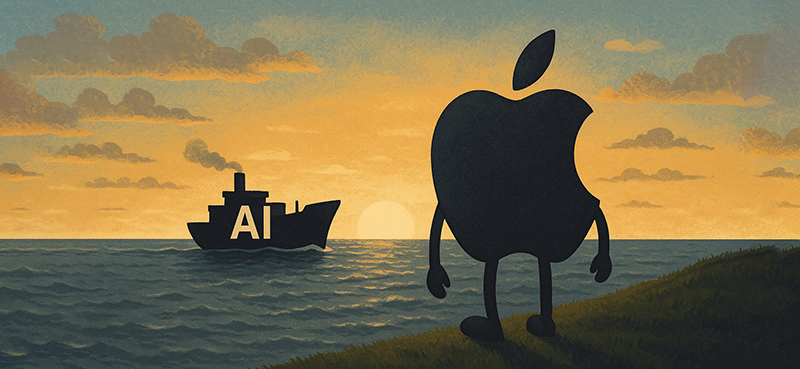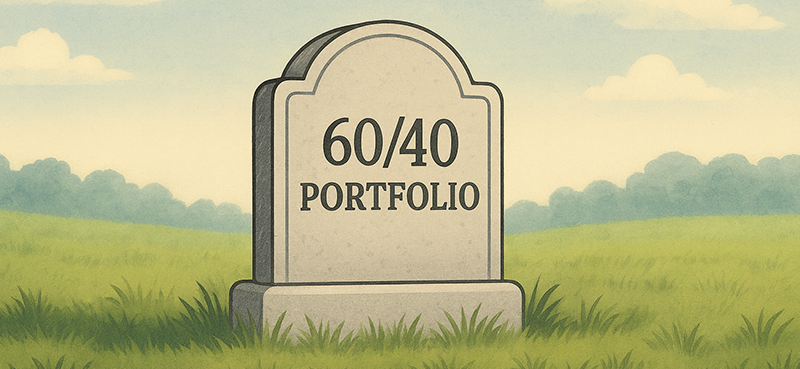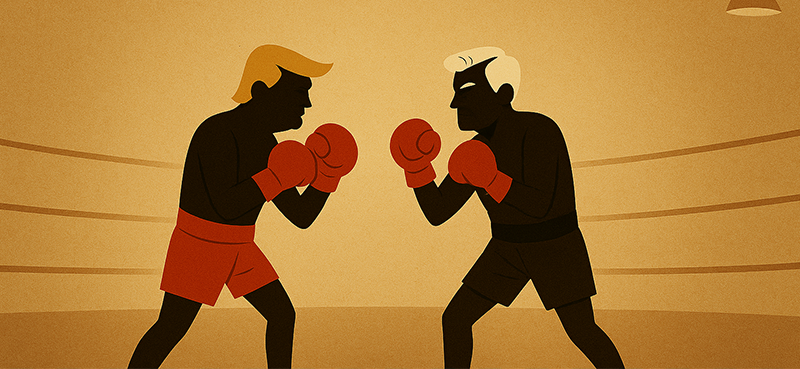Frank Curzio
Your favorite stocks are about to get crushed
What a busy time of the year… for gymnastics. I kick things off with a rant on why kids’ sports are a racket… and how they’re failing to prepare kids for the future.
I also rant about how inflation is hitting prices everywhere—even the games at Dave & Buster’s.
Fed Chair Jerome Powell is in front of the House Financial Services Committee today after testifying before the Senate yesterday. I highlight how much Powell’s tune has changed in a month… how his words impacted the stock market… and why you should expect next week’s inflation data to come in hotter than expected.
Be sure to join us tomorrow for WSU Premium, when Daniel and I will share which companies we expect to get crushed as the Fed ramps up its battle with inflation.
Wall Street Unplugged | 1015
Your favorite stocks are about to get crushed
Announcer:
Wall Street Unplugged looks beyond the regular headlines heard on mainstream financial media to bring you unscripted interviews and breaking commentary direct from Wall Street right to you on Main Street.
Frank Curzio:
How’s it going on out there? It’s March 8th.
I’m Frank Curzio. This is the Wall Street Unplugged podcast where I break the headlines and tell you what’s really moving these markets.
So it’s gymnastics competition time. My daughter does competitive gymnastics and March, it’s a crazy month and into April. We travel almost every single weekend to go to a competition and most of these competitions are in Georgia. We’re right on the border. My daughter goes to a school in Georgia, which is 30 minutes away from us. And some of these places, we have to drive four, five hours away. One was by Atlanta, another place in the middle of nowhere, and two weeks ago, not too bad, the competition was at Jekyll Island. Beautiful place. We’ll hang out there for a little bit. It’s only about an hour away. Last weekend, it was at Savannah. It’s two hours away. We’ve been there a few times out at competitions. Big, big gym there and the convention center they have, it’s pretty cool. It’s nice.
Next month, the final competition’s going to be in Orlando, but the one last weekend I went to in Savannah. I mean, what a racket. It was 3,000 girls in the competition and they’re in different divisions. I think it’s spread out through two sessions, so we’re looking at five to six hours, and they charge $20 per person to get in.
So you have at least one family member there who’s going to drive the child, average is probably like two or three, so let’s say even at $40 per family, that’s $120,000. Of which, by the way, they only accepted cash at the door. You have to love that. They also charge $5 for parking, which is another $15,000. So after food, drinks, you calculate everything, again, I shouldn’t really be doing this, but that’s what I do as an analyst, it gives you a better perspective on the economy, what people are spending on. But basically, this place is raking in $150,000 for two sessions for a five, six-hour event. Again, in cash. One event.
If you look at these kids’ travel teams, what a business. You families out there, you know exactly what I’m talking about, if you have young kids. Basketball, baseball, gymnastics. When it comes to your kids, parents will do anything. They’ll pay a fortune and when we travel, we got to stay at hotels. Hotels are very expensive now. You’re buying food. You stay for a couple of days. We pay thousands of dollars for this. When you look at leotards, practice, one-on-one coaching sessions, not just the hotels, food, travel, all that stuff, it’s a fortune.
And maybe in a sport like basketball, I get it. We might be able to get you a scholarship to college, you have over a thousand schools in D1, D2, D3, they’re going to offer scholarships for you. You could play professionally overseas. A lot of my friends did that that I played against. There’s money leagues. I mean, it’s so hard to make it on a professional level, but there’s other ways to make money playing basketball. People do.
When it comes to gymnastics though, and you look at the hundreds of thousands of girls competing, there’s only about 60 Division 1 colleges that have gymnastics programs. Only 60. And if you’re really, really good, and you have your hopes on the Olympics, they take 24 girls, of which six will get a chance to actually compete.
Now, if you look at the last Olympics, Simone Biles bowed out of the Olympics since she had mental problems or whatever, the greatest gymnast ever. The girl that took her place on the US team finished eighth overall. She was a substitute for you. She finished eighth overall in the world out of the 24 best in the world that competed in overall. Eighth. That’s how hard it’s to make it.
But what a business.
And we all love watching our kids and watching my daughter, her best event is the floor. She got a 9.1 last weekend where she got the bronze. However, they don’t call it the bronze medal. It’s not the bronze. They call it third place, not a bronze. Since there are 12 places in her group, that’s how many people competed on her level, so everyone gets a medal. And I hate this and a lot of people say they hate it, but you really do. Even though you see a kid and if they don’t get a medal, you’re going to be upset. And when I played basketball, that may be better. You had to earn your trophy. Couldn’t walk on a team without knowing how to dribble a basketball and get a trophy just for showing up.
With that said, when I’m going to these events, you know why they give 12 place medals? It’s a business. If they didn’t, young girls and boys would be upset because their friends got medals. “I didn’t get a medal and oh, I’m going to quit. I’m not going to go in this.” I mean, it makes it easy for kids to quit nowadays. It’s so much negative. So working hard, trying to be great and working your ass off to finish fourth, which is a valuable, extremely valuable lesson, just by doing that, even though you don’t get a medal, it’s like, “Oh, I didn’t get a medal, this and that.” So let’s give medals to everybody.
So everybody goes home with medals and they’re showing them and everything is pretty cool, even though it’s 11th, 12th, it doesn’t matter. And you get it because it’s a business. As long as you can deal with the parents who are absolutely insane, some of them, but most believe their child is an absolute superstar, you’ll be okay.
Because I see that in basketball all the time when I was a ref. It was insane and parents would be yelling at me, yelling at the coaches. They’ll approach the coach because their child is crying, saying, “How come you don’t play them more?” The coach’s like, “All right, my fault. I’ll play them a little bit more next game.” Well, they’re going to get fired.
In my day, first of all, parents really didn’t come to the games that much. It wasn’t because my parents were bad. I had a great relationship with my parents. I love my parents. But they were busy. They had three kids. It was tough working, both of them working. It’s hard to drive your kids everywhere and go to the games. They basically barely had any free time, even on a Saturday, and they’re like, “All right, you play. You have fun.” But if they ever went up to the coach and asked why they didn’t play much, the couch would say, “Because your son sucks, he’s not good enough. I mean, all the other kids on the team, they’re dribbling, they’re shooting every single day. Your kid hasn’t picked up a ball in two weeks other than practice. You have him here because you want to get him out of the house. You maybe want some alone time. You don’t want him watching TV, but he has to practice if he wants to play. But sorry, you got to get better.” That’s the way it was.
Today, it’s different when it comes to youth sports. Again, a lot of you parents out there, frank@curzioresearch.com, you probably get emails about this, it’s different. And to me, understanding the money business aspect of it, I get it. But to the bigger point, much, much bigger point, I’m not sure we’re teaching our kids about the real world by rewarding them for being mediocre. I just don’t get it. But maybe it’s me.
I do love watching her compete. It’s a lot of fun. It’s awesome. Yeah, she gets a little upset if she doesn’t get a medal here and there, but man, she’s gotten progressively better, harder, working harder. She loves to compete. She wants to beat her friends. I love it. It’s a great valuable lesson. But man, just rewarding everyone for just showing up? I don’t know. We all say we don’t like it, but it is going to continue because the business behind travel sports is absolutely massive. It’s so many people. It’ll make $150,000 in six hours in cash. In cash. How great is that? That’s a pretty decent business.
Anyway, let’s get to the markets.
What do we see? Yesterday, Powell came out, testified in front of the House panel. Unfortunately, he’s there today, the second day, which is extremely boring. The reason why they have it live on all the financial media programs, if you’re watching or you have it in the background or wherever you’re doing with your job, is because earning season’s basically over and there’s nothing else to talk about. So we have to listen to all this garbage and all the grandstanding about politicians and jobs. “You keep raising rates, we’re going to lose billions of jobs.” And yes, it’s true, but you have to control inflation because it’s going to get a lot worse for those people.
Sounds familiar, right? What have we been saying? There’s no easy solution for this. The markets have fundamentally changed. We saw that as soon as Powell said, “It’s not transitory, we’re going to have aggressively raised rates.” It’s a different market. We haven’t been here pretty much in the career of most people that are going to give you advice. Over 12, 13 years, they’ve never lived in an environment with higher interest rates, no easy money policy, money being flooded into the markets. See, places like Dave & Buster’s, Five Below, discretionary places surge.
I went to Dave & Buster’s yesterday with my kids. All of a sudden, they started charging taxes on the money that you put on the cards. So I used to put $100 on each card. We’d go several times, going for 10 years to this place. So the more money you put on the cards, the more free tokens you get, which is money for playing the video games. You put it on the card and we’ll go and I’d rather do that, get more and go 2, 3, 4 times when they spend it.
Now they’re charging you a sales tax on that. That’s not like Florida law or anything. Usually, if you charge something and maybe you make it up other ways, you’re going to raise price. It’s really a shady, shitty thing to do to your customers. I was really pissed. My wife actually went up and said, “Really? We have to get charged?” You get charged at $15 for those two cards, an extra $15 for those two cards now. And they’re like, “I know. A lot of people have been complaining, we don’t know what to do about it.”
But you’re going to see this with more businesses because as we went there, 25% of the games didn’t work, there was hardly anybody there. So you’re getting much worse service and yet they continue to raise prices and squeeze out as much money as they can. You’re going to see that from business to business and business. And what happened to me is they lost me as a customer for doing something so stupid. It’s not that… It’s $15 bucks, but still, it pisses me off that you’re raising prices for the games, you’re raising prices here. I don’t care about raising prices. I understand the business aspect. Believe me, I understand how most businesses are run. I get it. I’ve been doing this for 30 years.
But there’s ways to do it where… provide more value for your customer if you’re going to charge them more. Don’t give them worse service. Don’t take more items off a menu at your favorite restaurant and your bill is 40% higher than it was 24 months ago. Probably much higher than that. But that’s what we’re seeing. It’s a result. And people saying, “You know what? I’m not going to go to that restaurant anymore. I’m going to go someplace else.”
And that’s the next trend that you’re going to see. It’s going to happen because you can only take out so many employees out of the marketplace before it impacts business. Yes, you’re going to see earnings go up temporarily and that’s good, but you need to see that top line growing, which we’re not seeing, especially based on this past earning season. Earnings are starting to come down despite all these layoffs.
But getting back to Powell, yesterday, basically a 180 from 30 days ago when he was interviewed at the event in Washington, DC. Kind of reminded me of my wife. She’s going through menopause. “I’m hot, I’m cold, I’m hot, I’m cold, I’m hot, I’m cold, I’m hot, I’m cold. Turn off the TV, turn it louder. I can’t hear it. Turn it lower,” back and forth. This is all within a day.
But the back and forth from Powell, 30 days ago, the Sesame Street word of the day, the one he used, which the market loved, disinflation. Disinflation! All it means is inflation’s coming down. “Disinflation! Disinflation has begun.” That’s what he said. “We expect 2023 to be a year of significant declines in inflation.” That’s what he said 30 days ago.
His overall demeanor at the meeting, Daniel and I covered that. He was kind of joking and he was laughing. I feel like he was taking like a victory lap and everybody was happy about it and the markets, they ate it up. You look at Fed Funds futures, pricing in what they believe the rate’s going to be in the future. After that meeting, they were pricing it in just one more rate hike, and a terminal rate, a peak rate, of 4.8%. The futures were also pricing in for rate cuts starting in September. It’s not that far away.
If you watched the financial media outlets that day, which that’s our job, to see what’s going on, most economists, market pundits, they were all in agreement. “Hey, one more hike. The Fed’s almost done.” Rick Santelli, respect him a lot in the bond market. He said, “Hey, I think this is it. We’re done. The Fed’s not raising rates anymore after this,” which is fine. That’s what he said. And I kind of see why he said it.
Again, 30 days ago, right? Powell’s really giddy, happy, excited. Yesterday, Powell changes his tune. He said, “There’s little sign of disinflation.” That’s different from what you said 30 days ago. “Inflation’s running hotter than expected.” That’s different from what you said 30 days ago. “Inflation reversed the deceleration trend.” Again, I’m quoting him here. Again, different from what you said 30 days ago.
And what happened after yesterday’s meeting? The Fed Funds, the futures who are pricing at likelihood of one more rate hike, to now pricing in over a 60% chance of a 50-basis-point hike when they meet a couple of weeks from now, along with, “Hey, no cut this year.”
Now the terminal rate is projected to be 5.5%. 5.5%. Think about that. That’s a 75-basis-point hike in interest rates that’s now expected compared to just 30 days ago. You need to understand the significance of that because if we look prior to COVID, so if we look pre-2020, the last time we saw the Fed make a 75-basis-point move in the fed funds rate increase or decrease prior to 2020 was November 1994. One time. Close to 30 years and good luck going back. You’re going to have to go back I think to the ’80s.
That’s rare. Yet just one month… We’ll look from February 7th to today, the market went from pricing at a terminal rate of 4.8% to now 5.5%.
Now in all fairness, I’m not picking on Powell here because a lot has changed over the past month. Look at the data. CPI, PPI, PCE indicator, all the inflation gauges the Fed watches closely came in much, much, much hotter than expected. And to say, “Well, maybe it’s the weather,” it was nice. Record weather in January maybe, but now what do we have? The CPI’s coming out next week and you could tell by his tone it’s not going to be pretty. Already analysts are raising estimates for the CPI.
And that’s an indicator that was going down at a nice pace and now it’s not. It’s not going down the pace that they want to see it, and all while wages and jobs remain strong, which is puzzling. The Fed’s like, “What’s going on? Well, the data, I don’t get it.” Why aren’t more people losing their jobs? We’re seeing these layoffs, but in the services sector, more people are hiring and you’re losing more jobs in the technology sector.
You look at used car prices. The Manheim Index came out yesterday. Did you see that? Used car prices are starting to surge again. This is like several months, but the February to February increase was the largest since 2008. Does that sound like inflation’s moderating? How come we’re not seeing food prices go lower? How come we’re not seeing a major decline in home prices even though mortgages rates have surged? How come rentals aren’t coming down quicker?
In some areas, you’ve seen a little bit. You’ll say, “Well, in real time, if you look at the data…” Real time what? You let me know. I just got rent… My mom is selling her house that’s outside border and she’s moving to the villages and she signed the rent over there. And let me tell you, the rentals aren’t coming down at all. And we’ve been looking, she just locked in a place, but she’d been looking for three, four months. Three four months in the prime of this where rates have gotten significantly higher. We’re supposed to see a decline in rents. We’re not seeing it.
Good luck. The people looking for rent, to pay rent? You’re really seeing a decline? You’re really saying, “Oh, I’m going to wait a couple of months. It’s going to go lower”?
But again, in all fairness to Powell, what has happened in the past 30 days? Look at a two-year. From 4.1% a month ago to 5%. That is unheard of. That does not happen. 30-year mortgage, 5.9% a month ago, it’s over 7%. Do you know how many items go into a house when you purchase it? Believe me, I know this, I know this well and I’m going to know it even weller. I’m going to make up words because I’m moving into my house in two weeks. And yes, we have to get a lot of furniture.
But if you have homes that are purchased and that transition into buying new appliances for the new home or cameras or whatever you’re going to buy, TVs, upgrade anything, gone. Yet home prices are staying high. Why? Because supply’s relatively low. It’s why the home builders are still doing pretty well. I don’t know. If you’ve been trading at 52-week highs, demand falling off a cliff, doing a good job of selling existing homes, pain points, giving away a lot of free shit to new people. I get it because that existing year, 18-month supply in the market, that they have. But man, six months from now, what are they going to do?
So a lot has changed for Powell to actually come on and have this face on and you’re going to have that face on I guess because last meeting he was… One-on-one this interview, the guy was kind of joking around and laughing, and now you’re getting grilled by Congress. Just again, it’s all an agenda with Congress as you could see. “Last time this happened, the Republicans were in charge 20 years ago,” whatever. All the bullshit back and forth, nobody cares. Politicians make money, bullshit, all garbage. But he’s not too happy today.
Now the bigger point here, guys, is the Fed’s current strategy: raise rates by small increments now with the US economy, we’ll have a soft landing. It’s not working. But adamant that we will not have a soft landing. It cannot happen. It’s impossible. It’s impossible. To control out of control inflation, you need to force a recession. Most of the time, it’s going to be a deep recession. You have to make conditions extremely worse when demand falls off a cliff. Unemployment rises, people drastically cut back spending. You’re not seeing that and you’re not going to see that with these smaller rate hikes.
Why? Why is it different this time? Because you injected $11 trillion into this market and handed it directly to business and consumers this time. You didn’t hand it to the banks who decided who are they going to lend to and not and have the greatest balance sheets on record. And most of the large banks are 3X to 5X bigger than they were during the credit crisis where they were able to kick businesses out of their banks without any questions being asked. T.
Hat’s another rant you guys probably know about.
And what do the banks do? Hey, let’s raise dividends and buy back our stock. Since we could only lend out a certain amount, we have to be careful. Our capital ratios have to be in line. With Dodd-Frank now and all this, so we have all this capability. What are we going to do? Well, let’s buy back stock, make more money for ourselves. Great, great system they got in place there.
But this time it’s different.
Where’s the money going? Right to people. They spent it like crazy. They still have some money on the sidelines. Yes, while they see their savings dwindle, they still have a lot of money. They’re much richer than they were two years ago, even though they portfolios are down a little bit from their highs, down more than a little bit from their highs. Their home price is starting to decline. Probably a little worried about their job right now. You should be, no matter what job it is, especially if you’re making above average money, you should worry. You could easily be replaced by someone making half as much, especially if your job skills are not great and you’re not a necessity. Some people are. Most people, maybe not so much. You thought you were until the company’s cutting costs because there’s no way they can meet this inflated earnings expectations.
But if you’re looking at this playbook of a soft landing, it’s impossible. These conditions have to get worse. And the Fed knows that now.
And if you’re looking at what’s the playbook? The playbook is the late ’70s and ’80s and they made a huge mistake trying to do what Powell’s doing right now, have a soft landing. Because the Fed thought they had inflation under control. It was by significantly raising rates in 1978 and into 1979, halfway, mid-year, they had it under control and they started lowering the rates right away. And it bit the Fed in the ass.
Inflation came roaring back into 1980 and the Fed had to raise rates aggressively again. And a lot of people got crushed. The markets got crushed. Everybody got hurt during that time. It was very, very difficult. But that’s the playbook. It wasn’t… Hey, there’s no soft landing here.
And Powell was saying, last meeting, to be fair, he was saying, “Look, we’ve got to raise rates. We got to go hard.” Just the market was like, “He’s full of shit. They might not raise rates again and we’re good and inflation’s under control.” Like he was saying it. I just don’t like the fact that he used the term disinflation and now he’s like, “We don’t have disinflation” because that that’s a change.
Remember, we’re looking at a guy that every word matters because he’s the most powerful person on earth. He controls the global economy based on what his organization’s going to do with rates.
And if you look at inflation, it’s like having fleas in your house. You can’t kill 85% of them. Sure, you see the difference and be like, “All right, the house is better. That’s okay.” There’s less fleas in your home, but they’re going to come back even stronger unless you eradicate them. With inflation, you need to kill it. You can’t just pretend you’re killing it. You can’t just go, “Oh halfway. Oh, okay, we’re looking good.” No, it’s this thing that’s always going to come back unless you destroy it. It has to be destroyed. In order to destroy it, it’s pedal to the metal.
And that’s what you did early on and it seemed to be working, the 75-basis-point hikes, but now you slow down, it’s not working. There’s just too much money in the system still. And you’re seeing that. People continue to spend, prices continue to go higher.
Again, you’re not paying for anything right now. Maybe gasoline prices might be a little bit lower, but from last month to this month, are any of your bills lower? They’re not lower over the past three months, definitely not over that six, nine, year, two year, three years. But even over the past month, did you look at your bills and go, “Holy shit, man. Everything’s lower now”? No. Prices are not coming down. Go shopping, get food, go places. Go out to a restaurant, go to a hotel where they’re going to charge you $80 a night in incidentals just to walk into the hotel on top of whatever you booked it on whatever site you booked it at, even if it’s their own. They’re charging more and more and more and more fees. That’s what you’re seeing everywhere with much less service. But you’re not seeing inflation come down, especially as fast as they want it to, and they know it.
And this CPI rating, or this CPI reading, which is going to happen next week, it’s going to come in hotter than expected. We’re expecting it. They’re going to talk about it. They’re going to talk it up, they already leaked it to the Wall Street Journal. It’s what they do whenever they have something that they have to say, just to prepare the markets for, but it’s significant. Suddenly, rates are going higher and you have to adjust.
And what does that mean to you and your portfolio? It’s significant.
Yesterday’s news with the Fed, it wasn’t priced into the markets. That’s why you saw the Fed Funds futures pricing at a 50-basis-point cut. It’s something we’ve been saying pretty much two months ago that they should be doing, when now we saw it at the last meeting, that some people were saying, okay, they’re done. Now they’re going to go 50-basis-points. Again, this wasn’t priced into the market, that’s why the market got hit a little bit, but it’s going to get hit.
I mean, you let me know what the catalyst is to buy stocks right now. Let me know. What’s the catalyst to buy stocks? They’re not cheap. They’re more expensive than they are almost at any other time, when you factor in interest rates, almost any other time over the past 20 years, 25 years when you’re really looking at the returns that are expected compared to the risk-free rate, and it’s called the equity risk premium. Look at it. It’s at the lowest level. You expected 1.5%. You usually expect 4% gains annually over whatever the risk-free rate is. But the risk-free rate of six months bills is 5%.
So if you’re going into stocks when you know you get 5% for free, when you know all this shit going down, I didn’t even mention the fight that these guys are going to have politically, these assholes are going to have back and forth, raising the debt ceiling. Russia making much more progress in Ukraine. How much money are we going to give Ukraine? We’re going to continue to fund them. They’re not going to win that war. They won’t.
Again, looking at it from a market perspective, not… Again, a lot of people are dying. It’s war. Geez. But we’re not factoring that. We’re not factoring our ties with China right now. Geopolitical risks, not even talking about that. China reopening. Did you see their latest numbers? Really? Everyone’s stocks have been going higher, like everything’s great over there. Did you see the imports and exports? The exports down 10%, imports down, what is it? 5%? Both more than expected. Really? Because that’s compared to last year and I would think that you reopened, those numbers should be booming, and they’re not when you compare it to last year when conditions, again, weren’t that good.
So where are we seeing the reopening and this whole China growth? That’s where the growth’s coming from. I don’t see it in the data. I don’t know who sees it in the data. Show me data points. Look at debt. They’re trying to flood money with cash. Doing everything they can to stimulate that market. But based on the data, you’re not seeing it. I’m not even going to talk about those risks.
But what Powell said yesterday is significant to your portfolio. Again, I’m not talking about the obvious risks with higher rates slowing down in business. There’s another major factor we learned from Powell’s testimony yesterday that’s going to result in a lot of big names that are likely in your portfolio that are going to get smoked come next earning season. And this is definitely not being priced into those names.
So on tomorrow’s Wall Street Unplugged Premium podcast, me and Daniel are going to list more than 20 of these big cat names that are some of the most widely held stocks in the world that you should be buy and puts on right now based on what Powell said yesterday.
The Wall Street Unplugged Premium, that’s our new service we launched. Includes a brand-new podcast hosted by Daniel Creech and myself. Membership includes the Dollar Stock Club. Daniel and I recommend a trading idea every single week, deep analysis of this idea during the podcast, and then we’ll send you a one-page report, a write-up, along with a buy-out price and a stop loss. This could be a put, this could be a call, it could be crypto. Any place that we see value that you can make money on is a trading idea in the Dollar Stock Club portfolio, it’s included in Wall Street Unplugged Premium.
Also included is access to my Frankly Speaking podcast, which anyone subscribed to any of our services gets. But this is a Q and Q where subscribers ask me any question they want, I’ll answer. It’s usually cool. You ask me anything you want, not just about stocks, but we get great, great questions. That podcast is published every Friday. Again, also included in Wall Street Unplugged Premium.
Also have exclusive interviews. We’re releasing our first this week where I interviewed the CEO of a publicly traded metaverse company where he’s giving plots of land away for his new metaverse for free. You’re going to get all that on Wall Street Unplugged Premium and we’re just charging $10 a month. That’s it.
Are you interested in subscribing? Go to WSUoffer.com. You can subscribe for one month and say, “Frank, you know what? I don’t like this product. Whatever.” You can cancel it any time. It’s very easy, no questions asked, but you probably won’t because the detail, the analysis that I know you’re not going to find on any other podcast is there. Plus, you get access to a lot of products, special interviews and a lot, a lot of great stuff, especially Dollar Stock Club. That’s a great, great newsletter. Trading ideas every single week.
So our first Wall Street Unplugged Premium podcast was last week and we recommended our first trade, our first trade of many. You can see every single week in that portfolio. And again, if you’re interested in learning more, go to WSUoffer.com.
So for you, Wall Street Unplugged Premium members, I’ll see you tomorrow with that list of 20-plus names that are likely to get smoked when they report earnings, which next earning season is going to come in just a couple of months, and we’re going to send a trading idea of what we think the best way to play this market.
I’ll see you guys then. Take care.
Announcer:
Wall Street Unplugged is produced by Curzio Research, one of the most respected financial media companies in the industry. The information presented on Wall Street Unplugged is the opinion of its host and guests. You should not base your investment decision solely on this broadcast. Remember, it’s your money and your responsibility.
























